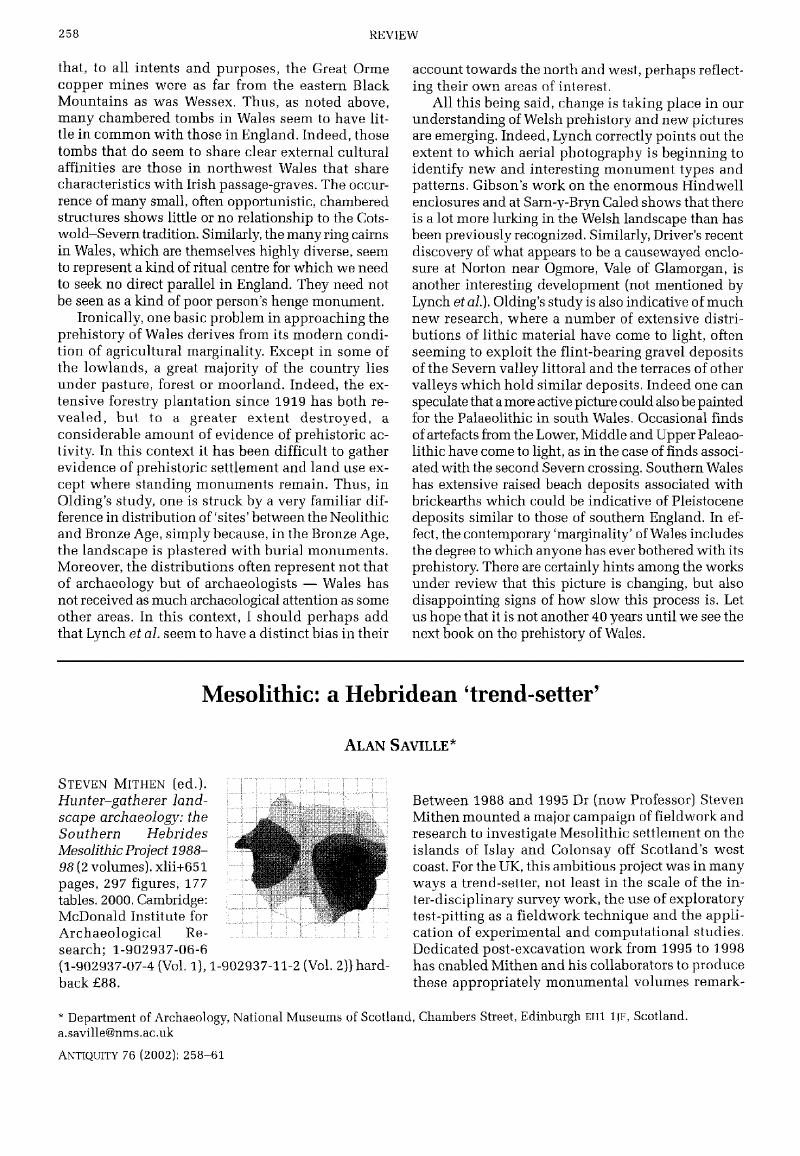Crossref Citations
This article has been cited by the following publications. This list is generated based on data provided by Crossref.
Spikins, Penny
2001.
Hunter-gatherer landscape archaeology: The Southern Hebrides Mesolithic Project 1988–98. Edited by Steven Mithen Pp. 651, 596 illustrations, 250 tables, 2 vols. ISBN 1 9029 3706 6 Cambridge: McDonald Institute. 2000. £88 (hb)..
Scottish Archaeological Journal,
Vol. 23,
Issue. 2,
p.
174.
Meiklejohn, Christopher
Merrett, Deborah C.
Nolan, Richard W.
Richards, Michael P.
and
Mellars, Paul A.
2005.
Spatial Relationships, Dating and Taphonomy of the Human Bone from the Mesolithic site of Cnoc Coig, Oronsay, Argyll, Scotland.
Proceedings of the Prehistoric Society,
Vol. 71,
Issue. ,
p.
85.



